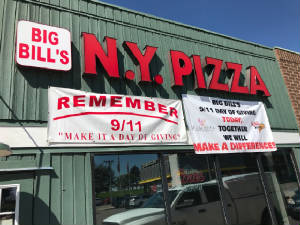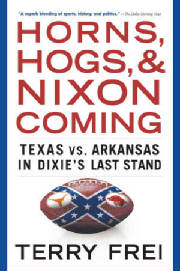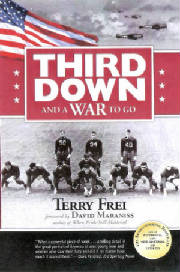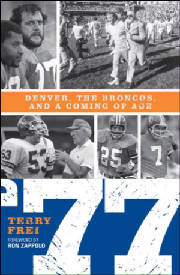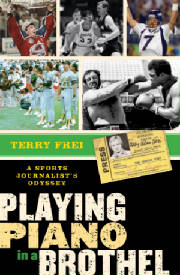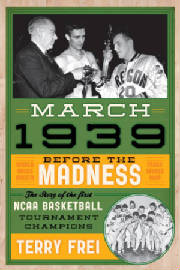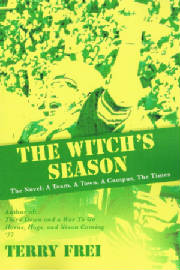September 17, 2023
Updated September 19
In wake of thrilling Rocky Mountain Showdown, Saturday's intriguing meeting of unbeatens in Eugene
will be 56 years to the day after another Buffaloes-Ducks matchup was the first game ever at Autzen Stadium
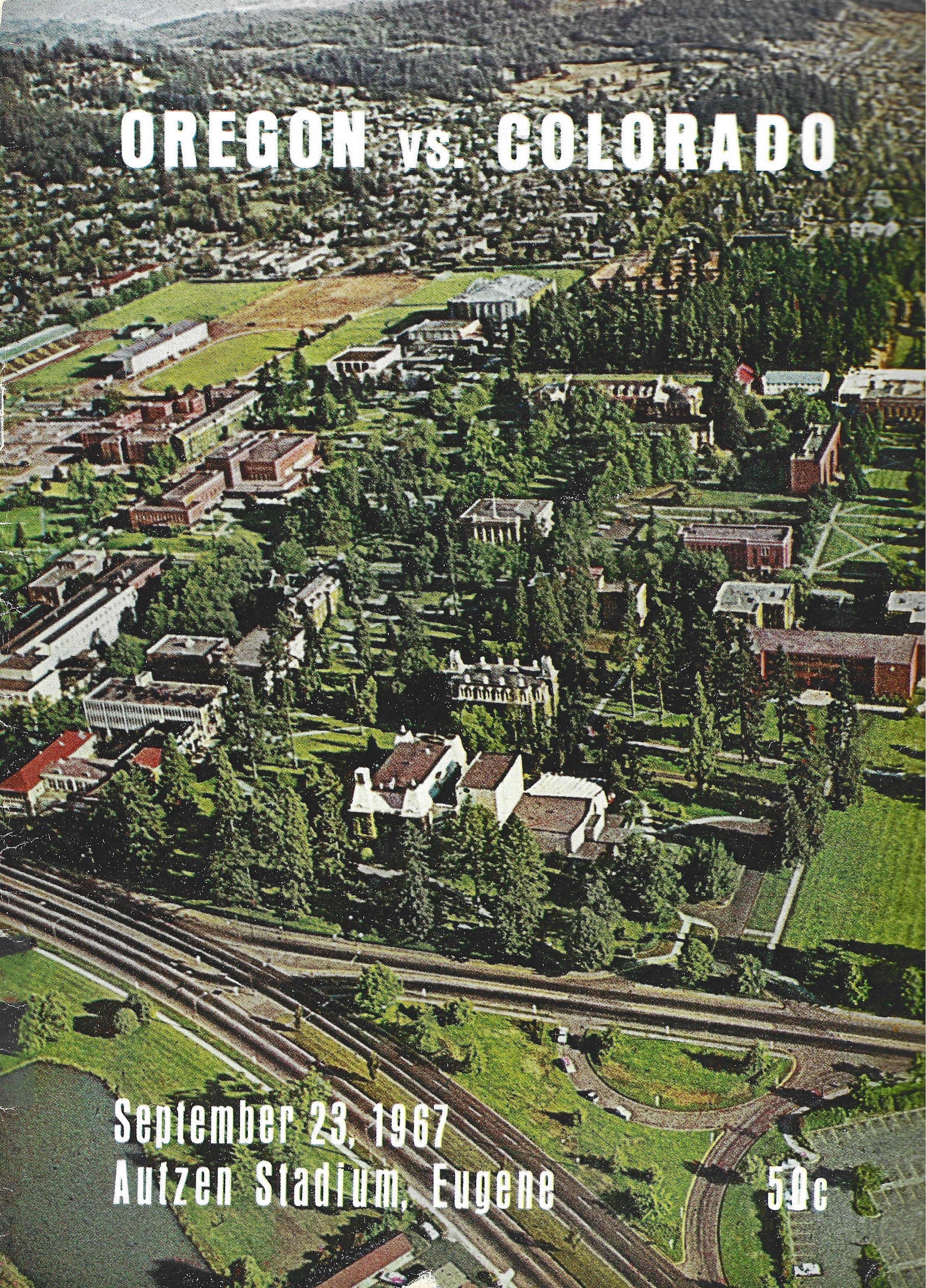
There
for a while Saturday night, as one of the greatest Rocky Mountain Showdowns of all time unfolded at Folsom Field and the plucky
Colorado State Rams were on the verge of shocking the nation, the Oregon-Colorado matchup in Eugene next weekend was about
to lose some of its luster. But then, largely thanks to a clutch 98-yard touchdown drive engineered by the remarkable Shedeur
Sanders, other CU Prime-Time plays and players, and the Rams' inability to close the deal, the Buffaloes pulled out the 43-35
double-overtime win.
So now the Buffs' Pac-12 opener at Autzen Stadium Saturday, and the buildup week, will keep Deion Sanders
and CU as the top national college football storyline. Actually, the competitiveness of the Showdown highlighted the fact
that we still don't know how good the Buffs are at this stage of the amazing turnaround. This much we do
know: Sanders does the best job in the nation of adapting to the college football revolution of NIL, the transfer
portal and star power in a star-power age.
Now,
hang on. I'm changing directions. Don't get whiplash.
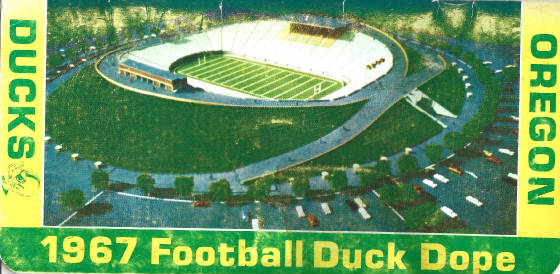
It's on to Eugene for the Buffs.
The Saturday game will take place 56 years to the day after another Buffs-Ducks matchup was the first game ever played at Autzen Stadium. My father, Jerry Frei, was the Ducks' head coach. A resident of Eugene since infancy, I was at the September 23, 1967 game,
and I couldn’t have known as I watched that I would end up not only attending CU, but spending most of my adult life
as a Coloradan.
For many months in advance of the stadium opening,
we most often made a father-son trip on Sundays. From our home at the foot of Eugene’s Spencer Butte, my dad,
then in his early 40s, drove us past the downtown and campus areas. We crossed the Willamette River and curled back to the
construction site at the edge of the riverside Alton Baker Park. We walked to the top of the earthen berm that was the foundation
of the stadium and took in the awe-inspiring scene in front of us, noting the construction progress since our previous visit.
Autzen was a marvel, and not only because it was built in only 14 months. The stadium
already was paid for when it opened after $1.3 million in private donations — primarily funded through the $1,000 sale
of donor seats under the roofed portion of the south side — and the allocation of slightly more than $1 million in athletic
department reserves. It was off campus, but one trade-off was that the former stadium, the wooden, 21,500-seat Hayward Field,
remained on the campus as what already was one of track and field’s national shrines.
The Ducks, after a brief run as
an independent before rejoining in the mid-60s what evolved into the Pac-12 Conference, needed a more suitable home for the
football program. As it turned out, 1967 also was going to be the Ducks’ first season under my father, the crew-cut
former World War II fighter pilot who became head coach after serving 12 years on the staff of his mentor, the great Len Casanova.
I mention my father’s
service because although his press guide and program biographies (see below) mentioned he played college football at Wisconsin
in 1942, 1946 and 1947, they never mentioned what he had been doing in the three-season gap… and to the best of my
knowledge, nobody in the media ever asked him about that or his 67 missions in the one-man, twin-engine P-38, or told that
story. That’s just the way it was then.
After being named the Ducks’ new coach, my father decided they needed a more combative image
and, at his urging, a commissioned artist came up with a new “Fighting Ducks” logo. It paid homage to his fighter
pilot service, but he didn't talk about that part.
My dad’s stunning salary — $17,600 a year! — was published in the Eugene Register-Guard. He got $100 a week for a television show. A local dealer supplied
him with a new Oldsmobile to drive. As he settled into the head coaching position, he assured boosters and others that his
youngest assistants had a bright future in the game.
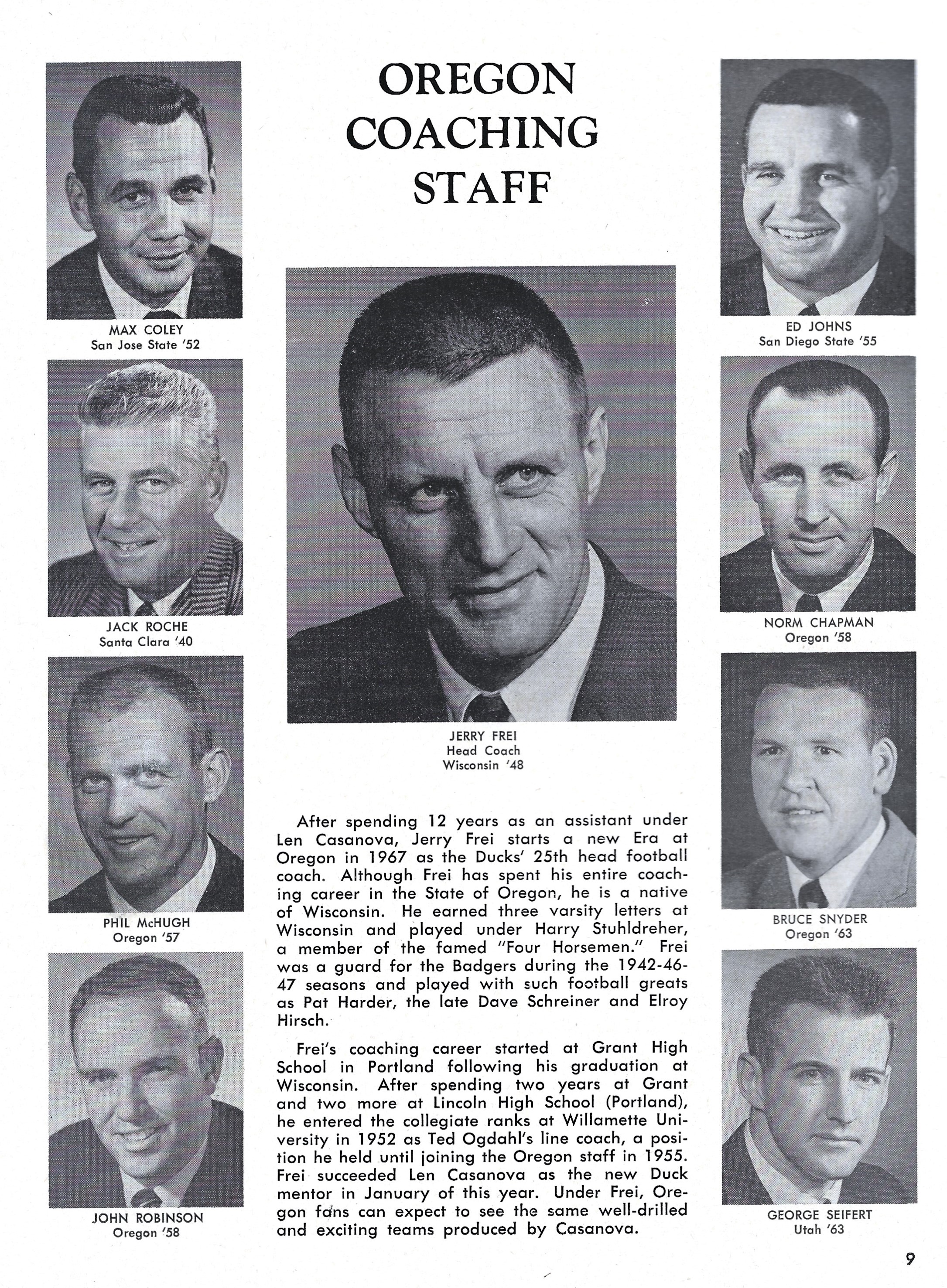
From the 1967 Colorado-Oregon
program: As the bio above noted, Jerry Frei had several illustrious teammates at Wisconsin, including Pat Harder and "Crazylegs"
Hirsch. But the best-known at one point was "the late Dave Schreiner," a two-time All-American end and 1942 Big
Ten MVP who was killed in action in the Battle of Okinawa. Among the Ducks' staff, John Robinson coached USC to a national
championship and also coached the Los Angeles Rams and UNLV. George Seifert was the head coach of the Super Bowl champion
49ers and the Carolina Panthers. Bruce Snyder was head coach at California and Arizona State, coming within one Rose Bowl
play of winning a national championship with the Sun Devils.
For that first game at Autzen, the Eddie Crowder-coached Buffaloes came
in ranked ninth in the nation and with two brothers from Boulder High School, Bobby and safety Dick Anderson, as their stars.
With 27,500 in attendance and a regional television audience watching, Bobby Anderson — then still a quarterback known
as Bob before his later switch to running back and to Bobby -- ran 18 yards for one touchdown and threw a 58-yard pass to
Mike Pruett for another, both in the first half. For the Ducks, Eric Olson hit Denny Schuler for a 26-yard TD and fullback
Jim Evenson scored from one yard out with 2:57 left. The Buffaloes held on to win 17-13 and went on to go 9-2 for the season,
losing only to Oklahoma State and Oklahoma.
In the era of limited televised games, even a regional appearance was a big deal, adding to the
celebratory feel of the stadium opening. (The broadcast crew was makeshift, with the usual network-hired announcers honoring
a labor strike.) The Ducks’ single set of green home uniforms in many cases was patched up, the new stadium’s
dressing rooms already seemed too small, and some remarked that as amazing as Autzen was in many ways, it originally was barebones.
When we returned home after the
Ducks' hard-fought loss to the Buffs, my parents put on what would become a routine after most home games — a reception
for family friends, coaches, boosters, athletic department officials … and yes, even newspaper writers. My dad not
only liked the scribes, he considered many of them friends.
That’s
just the way it was then too.
Fifty-six years later, Autzen is a gem because it always has been considered
that work in progress, with a series of refurbishments and facility construction and improvements connected to the stadium
itself. Nike mogul Phil Knight's support has been instrumental, of course, and too often overlooked is his support for the
entire university, including the Knight Law Center, and not just the athletic department. The Ducks justifiably are considered
to have close to the best -- and perhaps the best -- football facilities in the country. One of the coaches' offices in the amazing Hatfield-Dowlin Complex, which
honors the mothers of Phil Knight and his wife, Penny Knight, in 2014 was named after Jerry Frei. Our family attended
the spring game and toured the then-new facility, and the Ducks also honored my dad as part of Military Appreciation Day.
I'll never forget Marcus Mariota leading the players in the applause after the brief video tribute to Jerry Frei, including
showing him in pilot gear (see below), on the Autzen scoreboard.
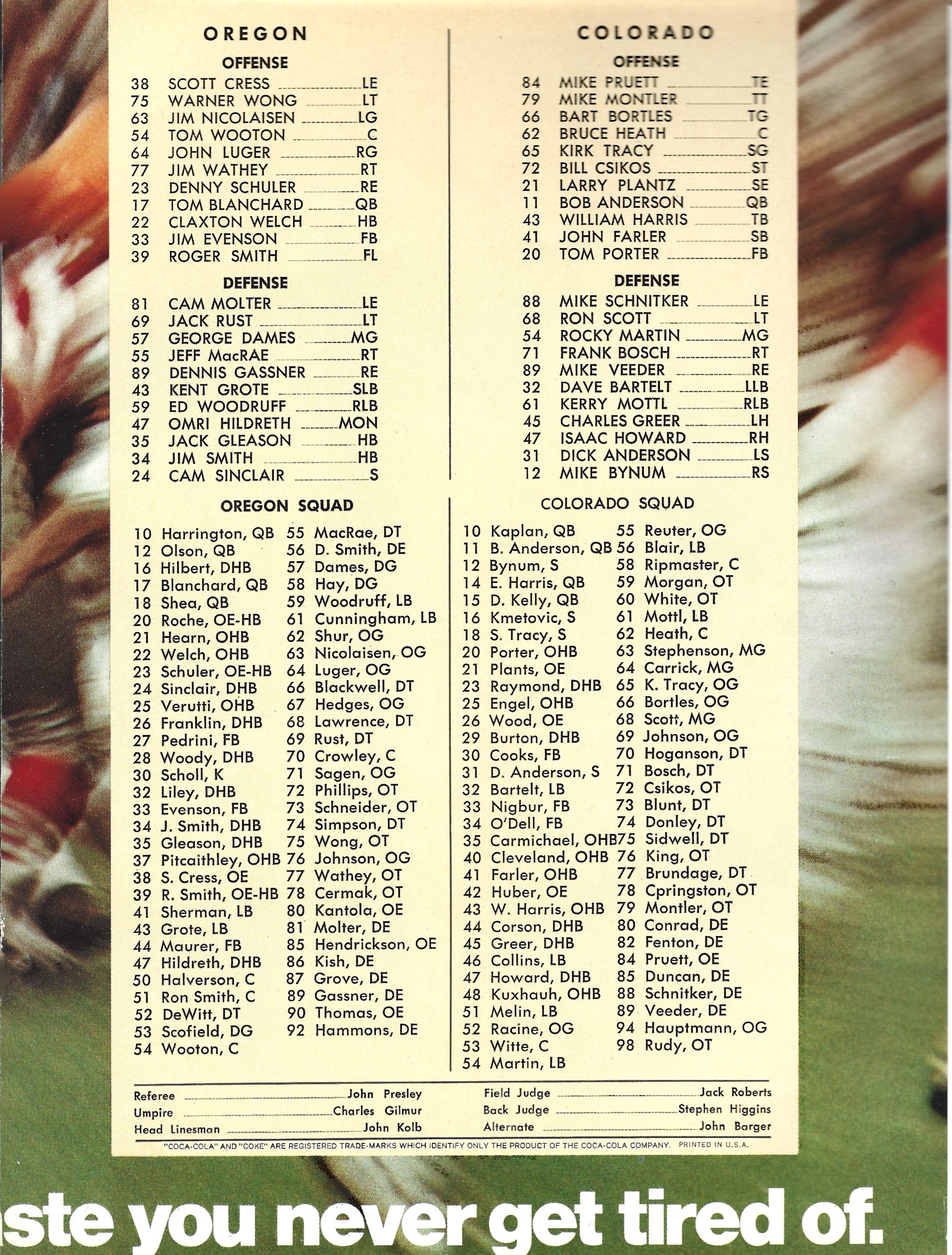
Side notes from those rosters: Ducks starting defensive end Dennis Gassner went
on to an illustrious career in Hollywood. He was Oscar-nominated seven times as a production designer, winning once -- for
"Bugsy" in 1991. Linebacker Gunther Cunningham (No. 61) joined the Oregon staff after graduation and later was head
coach of the Kansas City Chiefs. Among the Ducks' quarterbacks, Terry Shea was the head coach at San Jose State and Rutgers and John Harrington a few
years later got to see his son, Joey, star for his alma mater. Oregon fullback Andy Mauer and Colorado tackle Mike Montler
both started for the 1977 Broncos, Denver's first Super Bowl team. Mauer was a Denver tackle, Montler the Broncos' center.
Dick Anderson was an All-Pro safety with the Dolphins and Bobby Anderson was a Denver first-round pick who played four seasons
with the Broncos.
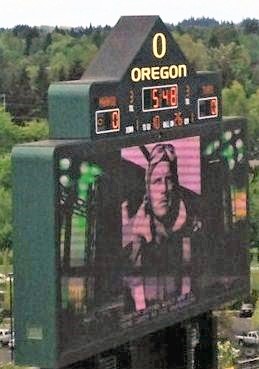
At the 2014 spring game, also labeled Military Appreciation
Day, the Ducks honored the late Jerry Frei, who was on the Oregon staff for 17 years and was head coach for the first-ever
game at Autzen Stadium -- Colorado at Oregon on September 23, 1967. Or 56 years to the day before the Buffs face the Ducks
Saturday in Eugene.
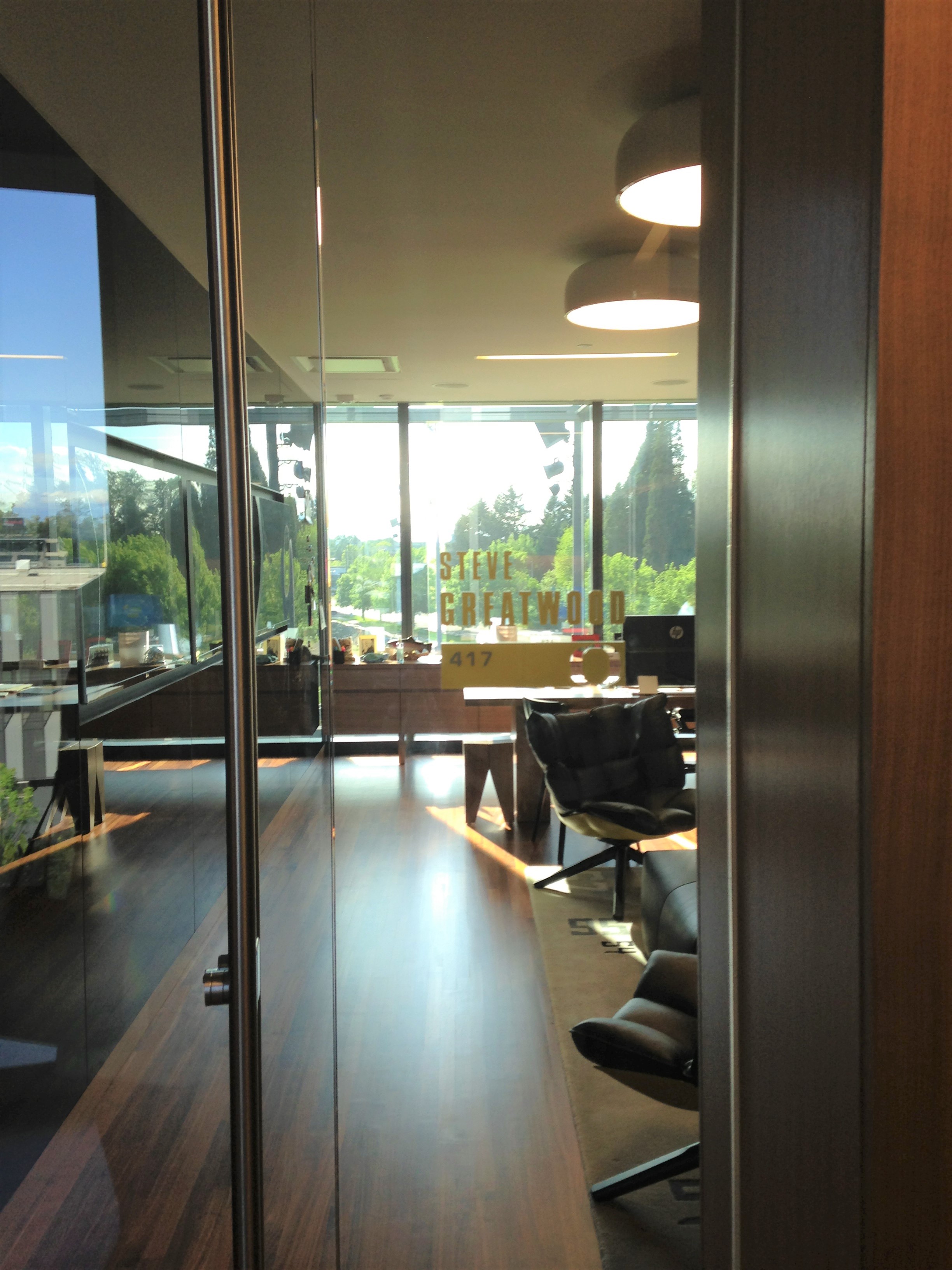
In 2014, the Jerry Frei Offensive Line Coach's Office.
Steve Greatwood then was the Ducks' offensive line coach.
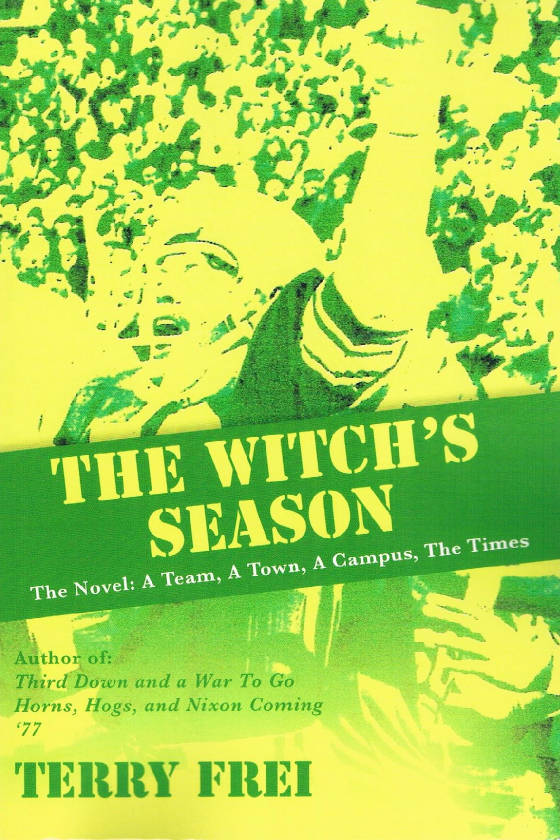
The Woodstock Era Oregon Ducks, plus the cauldron UO campus and
tumultuous Eugene of those times, are the models for my fact-based
roman a clef novel, The Witch's Season.








